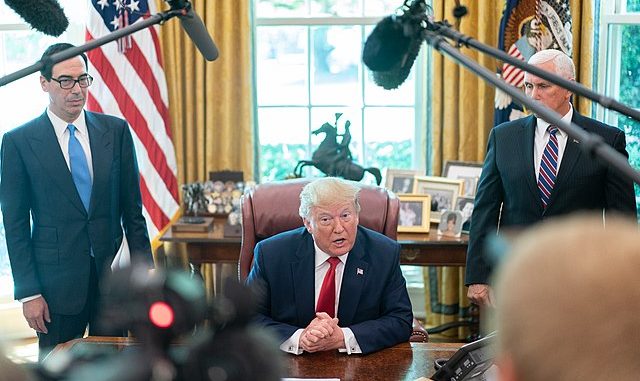
Last week, tensions escalated between the U.S. and the Iranian governments, with President Trump claiming that he had been just ten minutes away from ordering a strike on Iran. The Iranian government responded by saying it would retaliate with force as well. In other words, the U.S. almost launched a war against one of the most powerful countries in the Middle East – a senseless war that would certainly draw in other governments worldwide and lead to massive destruction and countless deaths.
The crisis began on June 13, when two oil tankers, one Norwegian and one Japanese, were attacked while sailing through the Strait of Hormuz. Positioned between Iran and Oman, the Strait of Hormuz is the only waterway leading from the Persian Gulf to the open ocean. And therefore it is the most important pathway for oil from Iran, Iraq, and Saudi Arabia to travel to the world market.
The truth behind what happened isn’t clear. The U.S. military claims that one of its drones captured footage of Iranian ships approaching the Japanese ships shortly before the attack. The U.S. military released a video claiming to show Iranian military forces removing an unexploded mine from one of the boats to cover up the evidence of the attack. However, the Japanese captain claims the ships were struck by flying objects and the damage was located in places that small boats could not have reached to attach mines.
On June 20, a U.S. surveillance drone was shot down while flying over the Strait of Hormuz, with both U.S. and Iranian officials disputing whether or not it was violating Iranian airspace. This increased the tensions. Trump responded by mobilizing the U.S. military, sending 1,000 more troops to the Middle East, and ordering missile strikes on Iranian targets that he then quickly called off. And then the U.S. launched a cyber-attack on Iranian computer systems to disrupt the Iranian military. The U.S. has provoked Iran to the brink of war.
What is behind all of this? Iran is a regional power, allied to China and Russia, with an influence in Iraq, Syria, Yemen, Lebanon and other Middle Eastern countries.
The Iranian regime arose in 1979 after a revolution that overthrew the Shah of Iran. The Shah was a brutal dictator whose military and secret police were funded and trained with the help of the U.S. The Shah was put in power in 1953 when the C.I.A. helped overthrow the democratically elected government of Prime Minister Mohammad Mosaddegh. In return, U.S. corporations received access to Iran’s oil, the third largest source of oil in the world. The U.S. funded Iran’s military and relied on Iran as an ally in maintaining control of the Middle East. All of this fell apart following the 1979 revolution. The new government seized the oil from the U.S. companies and the U.S. lost one of its major military allies in the region.
After the revolution, Islamic political forces led by Ayatollah Khomeini eventually seized control of Iran and established the Islamic Republic. Using religious rhetoric, the Islamic republic oppresses and exploits the Iranian population to benefit a small number of rich people. Not all Iranians support this regime, but they also remember what the U.S. did to their country. Meanwhile, the U.S. has used every possible means to undermine the Iranian regime. They say they want to help the people but this is a lie. The U.S. government wants total domination of the Middle East and the oil.
Most recently the U.S. has imposed crippling sanctions to stop Iran from researching and developing nuclear weapons. The U.S. only tolerates its allies having nuclear weapons. The effects of the sanctions are felt mostly by ordinary poor and working Iranians. If anything, U.S. aggression provides legitimacy to the rulers of the Islamic Republic who are able to blame the country’s problems entirely on U.S. sanctions and policies.
For now, Trump has called off a U.S. military strike against Iran. But the U.S. has needlessly created this extremely dangerous situation, which could easily spark a major, devastating war. Ordinary poor and working people in the U.S. have no interest in supporting this senseless aggression. It’s up to us to say NO to U.S. military aggression in the Middle East.
Download PDF
